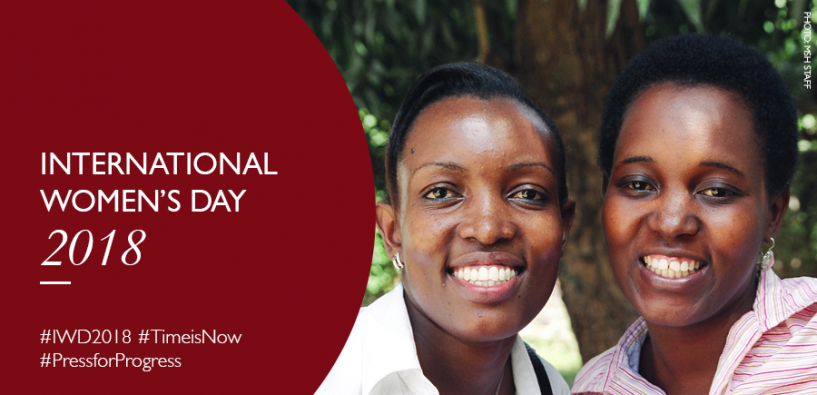International Women’s Day: Time to Listen to All Women and Girls
International Women’s Day: Time to Listen to All Women and Girls
by Kate Ramsey

After more than 15 years working on women’s health and development issues, I feel hopeful as the growing movement for women’s rights brings us closer to a breakthrough. Everyday, more women around the world — from Madagascar to Mexico — are emerging as leaders. They are organizing and demanding justice, equality, and the full realization of their fundamental human rights. In the halls of the United Nations, at the policymaking tables of country ministries, and in the local health clinics, women and girls are calling for health policies and services that meet their needs, and those of their families and communities.
On International Women’s Day, Management Sciences for Health (MSH) joins women worldwide to press for progress. Our work is grounded in the fundamental view that safeguarding women’s, children’s, and adolescents’ health is a core health system function. It is time we listen to all women and girls, because they are the health system.
Through our work in Madagascar, we know that when women have the right opportunities, skills, support, and networks, they can make informed decisions on what is needed for their health and their families, impacting their communities and beyond.
Guaranteeing women’s and girls’ access to safe, effective, and affordable care, medicines, and services–and ensuring supportive work environments where women health providers’ and managers’ voices are valued–will help close the gender gap and move countries closer toward achieving the UN’s Sustainable Development Goals. In Mexico, the FCI Program of MSH is working with midwives to advance the midwifery profession and bring high-quality, culturally respectful health care closer to women and newborns.
Profound progress will not come without deliberately engaging women in the improvement of quality care, as leaders, service providers, advocates, and decision-makers in the programs and policies that affect their lives. It is only by listening to women and girls at all levels of society that health systems can respond to the needs of growing populations, from prevention to treatment, from primary health care to epidemic response. In Malawi, we are creating a safe atmosphere to enable women and girls to speak openly about obstacles that prevent them from practicing healthy behaviors such as attending antenatal care visits.
By providing women with the tools and information so they can care for their own health, we will build stronger and more resilient systems that can tackle the problems of today and the future.